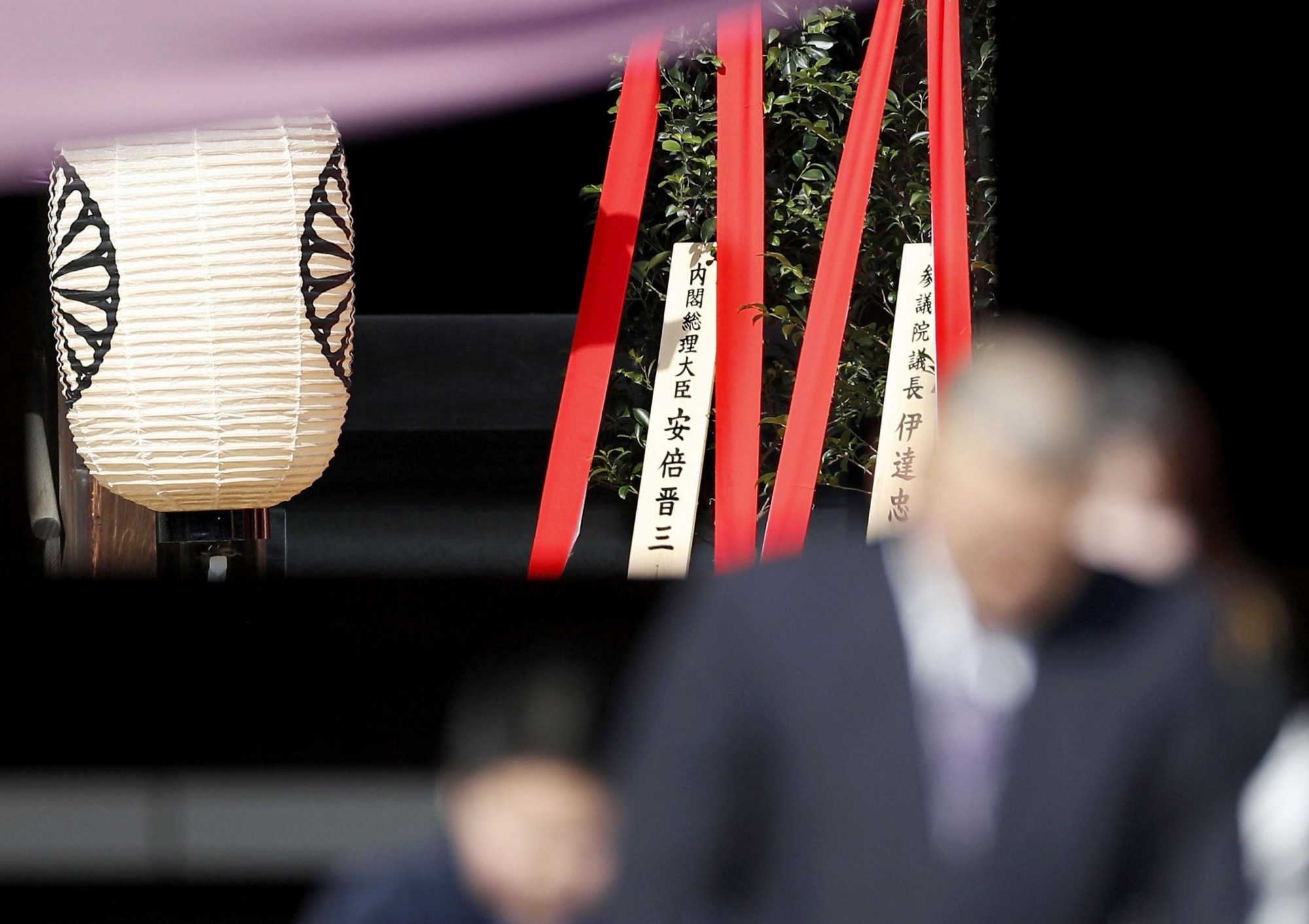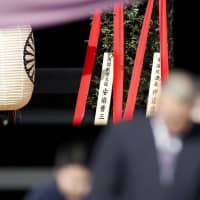Prime Minister Shinzo Abe sent a ritual offering Sunday to Yasukuni Shrine, which is regarded as a symbol of Japan's past militarism by other countries throughout Asia.
The offering was made on the occasion of a three-day spring festival through Tuesday at the Shinto shrine in Tokyo.
But Abe, who has a strong conservative support base, is expected to refrain from visiting the shrine as Japanese-Chinese ties frayed by issues linked to history and territory continue to improve.
Yasukuni Shrine is often a source of diplomatic friction. Past visits by Japanese leaders and lawmakers have infuriated both China and South Korea. Abe has not visited the shrine since 2013.
Historical issues, however, continue to cast a pall over Japan's relations with South Korea. In recent months, the two countries have been at loggerheads over the issue of compensating Korean wartime laborers.
On Sunday, Abe had a masakaki (tree offering) sent in his name for the spring festival at Yasukuni, which honors convicted Class-A war criminals along with millions of war dead. The tree is used in Shinto-style rituals.
Abe regularly sends ritual offerings to the shrine for the spring and autumn festivals. On Aug. 15, the anniversary of Japan's WWII surrender, he makes a donation.
This year's spring festival comes as Japan is making preparations for the first visit in June by Chinese President Xi Jinping, who is expected to attend a Group of 20 summit in Osaka.
The South Korean Supreme Court last year ordered Japanese companies to compensate for what Korean plaintiffs say was forced labor during Japan's 1910-1945 colonial rule of the Korean Peninsula.




